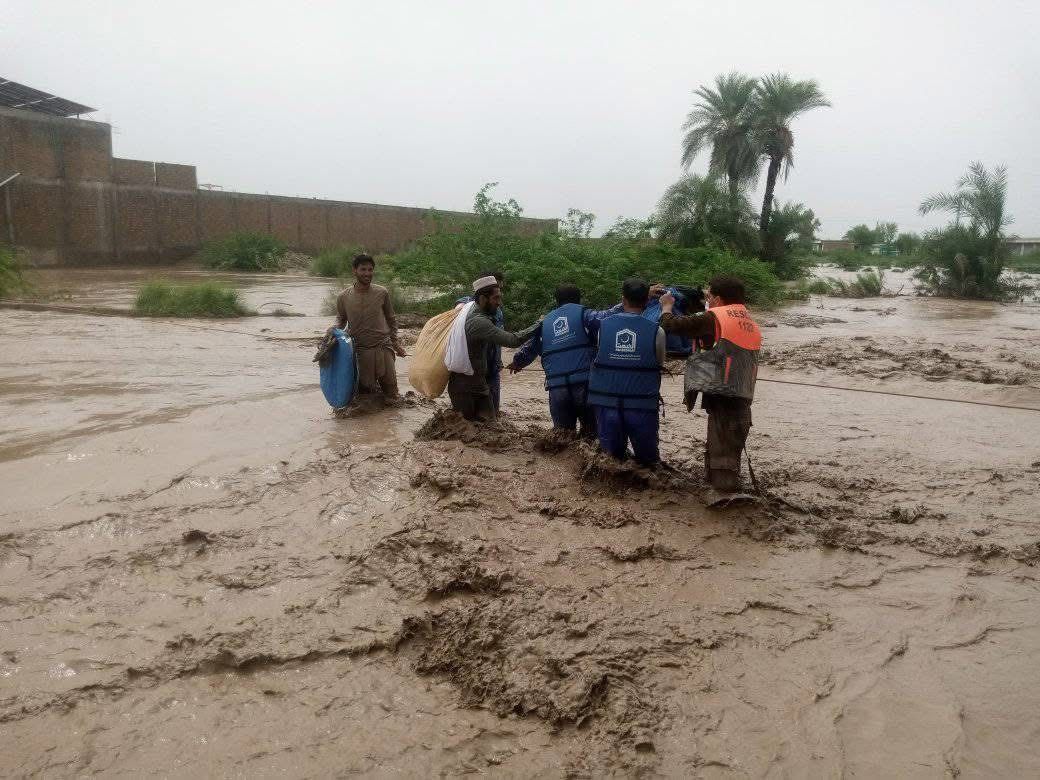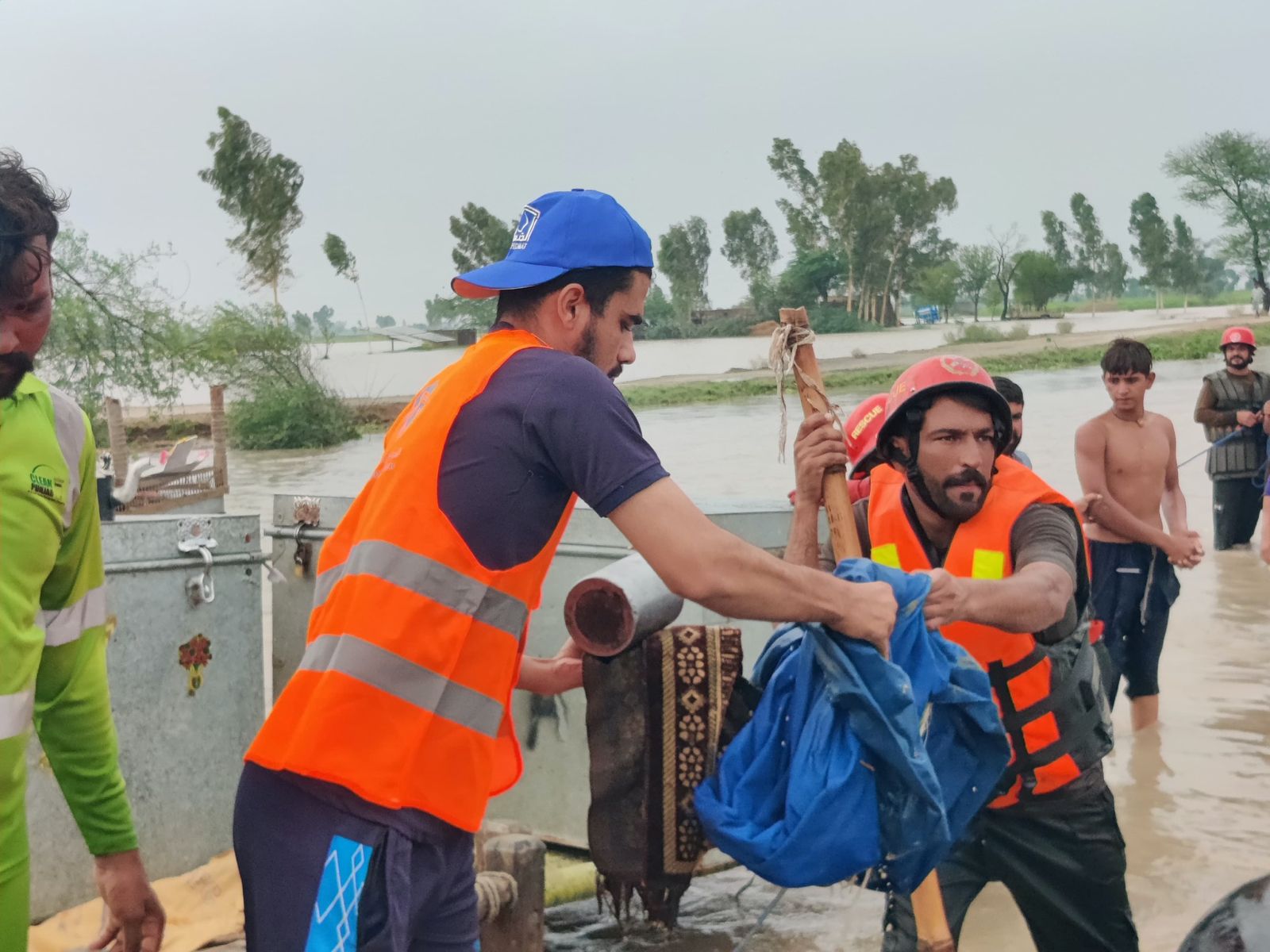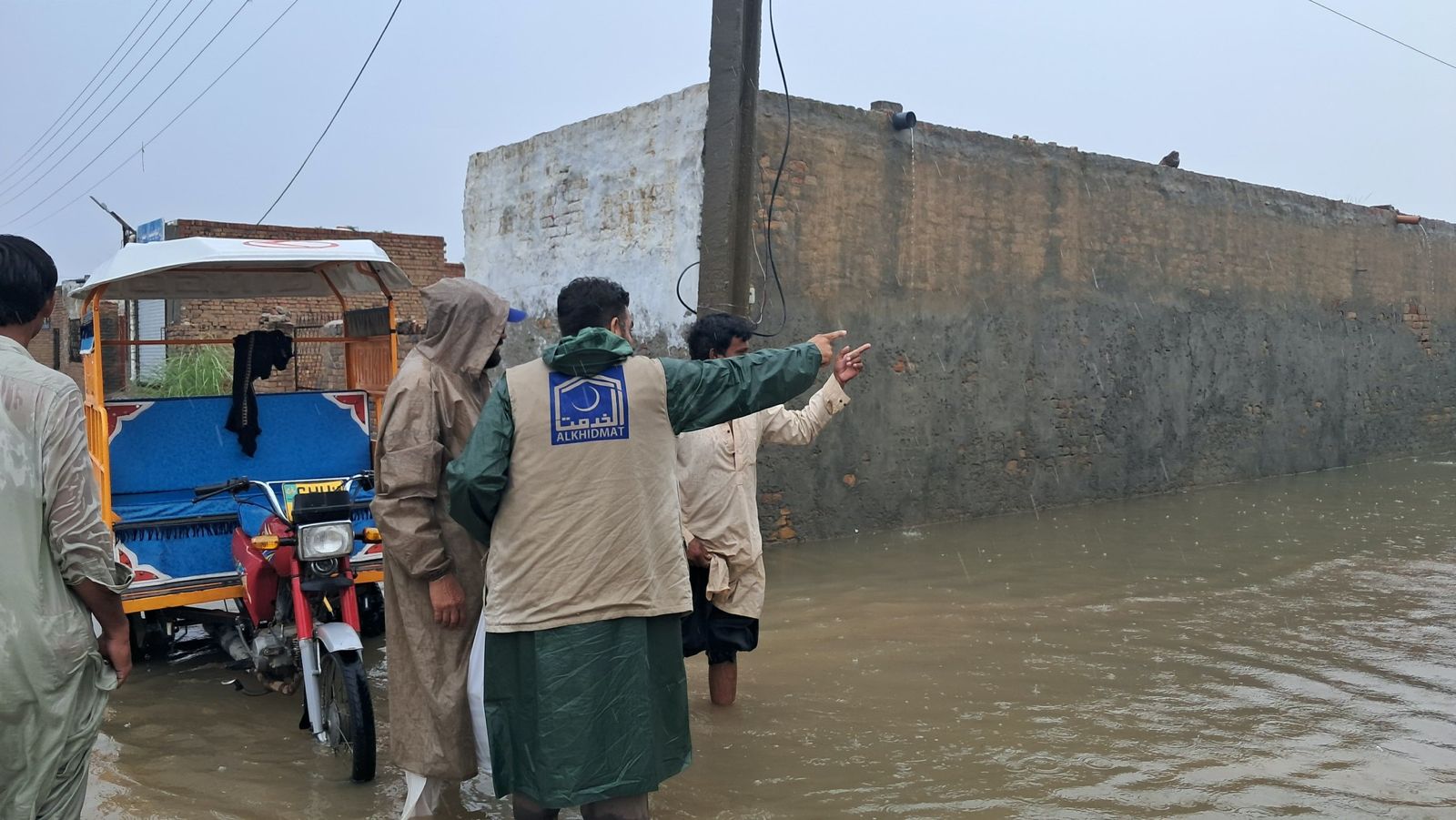- Alkhidmat Foundation Pakistan
- July 18, 2025
- Updated about
Torrential Rains Trigger Flood Emergency Across Punjab and Beyond
Pakistan is once again facing the deadly consequences of monsoon floods. Over the last month, relentless rains have turned seasonal weather into a national emergency. As of 23 July 2025, the death toll from floods in Pakistan has reached 245, with 603 injured. Just in the past 24 hours, 3 more lives were lost and 5 people injured, including children, due to lightning and flash floods in KP, AJ&K, and Islamabad.
Entire villages are submerged. Homes, crops, and livestock lie in ruin. With climate change accelerating, these flood disasters are no longer rare; they’ve become an annual nightmare.
Why Is Pakistan So Vulnerable to Deadly Flooding?
The Pakistan flood crisis is driven by more than just weather. As outlined in Al Jazeera’s in-depth report (July 17, 2025).
Here are the key reasons Pakistan faces devastating floods year after year
Unpredictable and Extreme Monsoons
Climate change has intensified monsoon patterns, causing rain to fall rapidly in short bursts overwhelming rivers and drains.
Melting Glaciers in the North
Pakistan has over 7,000 glaciers. The melting of glacial lakes leads to Glacial Lake Outburst Floods (GLOFs) sudden, devastating torrents that destroy downstream villages.
Rapid Urbanization Without Planning
Major cities like Karachi, Lahore, and Rawalpindi lack proper drainage systems, leading to severe urban floodingduring heavy rainfall.
Deforestation and Poor Land Use
The absence of natural barriers, due to illegal logging and land encroachment, worsens the intensity and speed of flash floods.

The Human Cost: Lives and Livelihoods Lost
As of July 23, 2025:
-
245 deaths (including 83 men, 44 women, 118 children)
-
603 injured
-
913 homes damaged (692 partially, 221 fully)
-
240 livestock lost
-
Thousands displaced across Punjab, KP, Sindh, AJ&K, and GB
Alkhidmat’s Emergency Response to Floods in Pakistan
Amidst this devastating flood emergency, Alkhidmat Foundation has activated its Disaster Management Cellsnationwide. Trained rescue volunteers, medical teams, and logistics units are actively serving in the hardest hit regions.
Relief efforts include:
-
62 rescue operations conducted, saving 450+ lives
-
Medical camps and mobile clinics deployed
-
700+ cooked meals and food ration packs distributed
-
Clean water access restored using water pumps
-
Trauma care, hygiene kits, and veterinary aid provided
-
Relief items distributed: over 3,368 units including tents, sleeping bags, mosquito nets, kitchen sets, and boats

District Wise Response Highlights
Chakwal
400mm of rain in 10 hours caused severe flash flooding. Over 300 families received food, hygiene kits, and shelter support.
Rawalpindi
Sawan River overflowed, resulting in heavy urban flooding. Helicopter rescues and relief camps were set up by Alkhidmat teams.
Islamabad
200mm+ rain inundated parts of the city. Emergency teams carried out rescue operations and deployed water pumps.
Jhelum
150+ homes affected. Alkhidmat provided medical relief, cooked meals, and helped support families with livestock losses.
Other Affected Areas
Evacuations in Lahore, Faisalabad, Chakri continued with support from the Army and local authorities. Emergency alerts remain active in multiple zones.
Flood Response in Khyber Pakhtunkhwa (KP)
The mountainous regions of Charsadda, Nowshera, and Peshawar are seeing overflowing rivers and landslides. Alkhidmat KP teams are delivering aid in hard-to-reach locations with the help of local authorities and volunteers. Relief goods, hygiene kits, and trauma care continue to be distributed.

Alkhidmat’s Disaster Management Capability
Alkhidmat Foundation operates one of the most extensive and agile disaster relief systems in Pakistan, including:
-
Pre-positioned relief stocks and emergency kits
-
Mobile medical clinics and trained volunteers across every province
-
Real-time coordination hubs and partnerships with local and national bodies
-
Certified teams for rescue, trauma response, and flood logistics
Whether it's urban flooding in Lahore, flash floods in KP, or glacial floods in Gilgit-Baltistan, Alkhidmat is always prepared.
How You Can Help
The 2025 Pakistan floods have already claimed hundreds of lives and displaced thousands. If you're looking to support flood victims in Pakistan, now is the time.
Donate now: alkhidmat.org/donate
Follow Alkhidmat Foundation for live updates on Pakistan flood relief efforts.
Click to see the full report
Bio. Press Release
show more
It is a long established fact that a reader will be distracted by the readable content of a page when looking at its layout.
It is a long established fact that a reader will be distracted by the readable content of a page when looking at its layout.